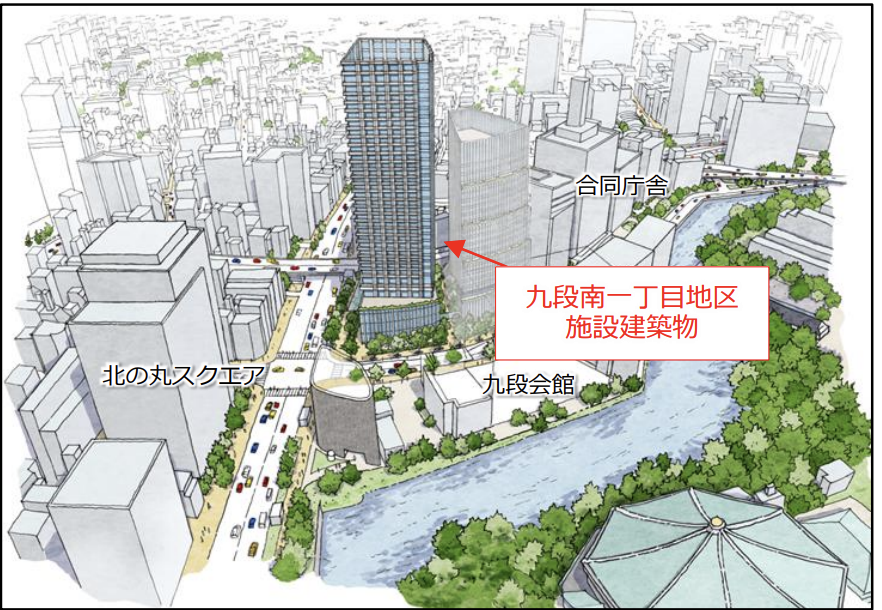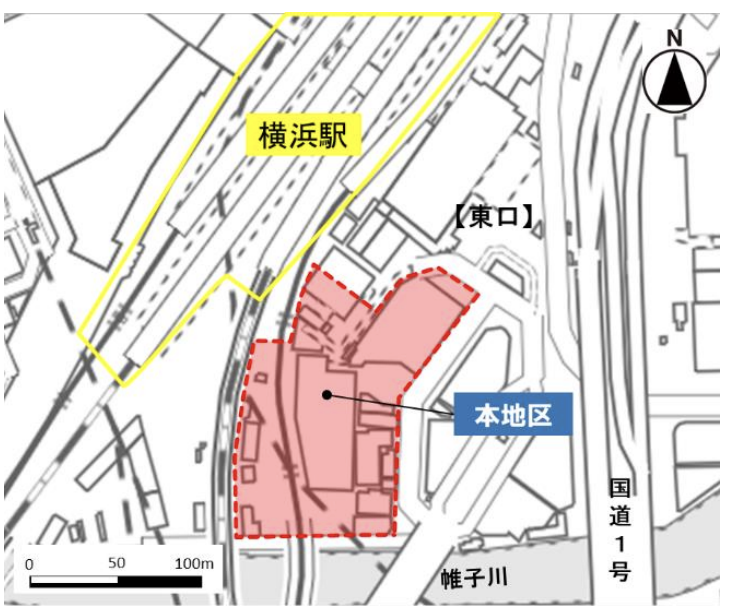For property owners, " property management fee " is a generic term for expenses paid when outsourcing the management of rental properties to a professional management company. Specifically, the concept includes both the management fee (management consignment fee) and the actual expenses required to maintain the property (cleaning costs, inspection costs, etc.). In exchange for this fee, the management company performs complicated tasks such as tenant relations and building maintenance on behalf of the owner.
Definition and General Structure of Property Management Fees
First, let's take a look at the basic structure of property management fees. A management fee (management consignment fee) is the portion of compensation for entrusting the management of a rental property to a management company. In most cases, it is calculated by multiplying a certain percentage of the monthly rent income ( the market rate is about 5%). For example, if the total monthly rent income is 800,000 yen and the commission rate is 5%, the monthly management fee would be approximately 40,000 yen. It should be noted that in many cases, this rent income includes not only rent but also common service and management fees (maintenance fees for common areas of condominiums, etc.) collected from tenants. On the other hand, the actual cost portion refers to individual expenses incurred in the process of property management, and the owner bears the costs of cleaning and repairs, etc., as described below, on a case-by-case basis. In other words, it is best to understand that property management fees consist of " fixed fees + variable actual expenses.
Breakdown of property management fees: Main items and details
Property management fees include a variety of items. Although the scope of the fees varies depending on the details of the property management contract, the following is a general breakdown of property management fees.
-
Cleaning costs: Periodic cleaning of common areas of the building and room cleaning costs after tenants move out. This includes cleaning of common stairways and hallways, lighting inspections, and other expenses to keep the building clean on a daily basis. When outsourcing to a management company, payments to cleaning specialists may be made collectively through the management company.
-
Facility inspection costs: These are costs for periodic inspections of building facilities, such as elevator maintenance inspections and statutory inspections of firefighting equipment. These inspections are essential for maintaining safety and compliance with laws and regulations, and are scheduled and ordered by the management company to a specialized contractor.
-
Repair and maintenance costs: These are costs incurred when building or equipment malfunctions. These expenses include repairing water leaks, dealing with malfunctions of water heaters and air conditioners, and remodeling to restore the building to its original condition after vacating. In some cases, large-scale repairs are treated as capital expenditures.
-
Tenant Recruitment Expenses: These are advertising expenses and brokerage fees for recruiting new tenants. Generally, a contingency fee of 0.5 to 1 month's rent is paid to a real estate brokerage firm to place a tenant in a vacant room. This is often borne by the owner and is paid only once a contract has been signed.
-
Contract renewal fee: This fee is charged when renewing a lease contract with a tenant. In most cases, a renewal administration fee of about 0.5 month's rent is collected from the owner or the tenant. This fee is incurred as compensation for the management company handling the renewal process on behalf of the tenant.
-
Other expenses: In addition to the above, there are other minor expenses required for property management, such as the cost of stamps at the time of contract, 24-hour emergency response service, property insurance, and key replacement. Depending on the contract, there may also be optional fees with names such as "◯◯◯ service fee.
Point: When concluding a management contract, it is important to clarify which services are included in the monthly management fee and which are separate costs. For example, "tenant recruitment costs (advertising fees) are not included in the management fee, but will be charged on a case-by-case basis," or "cleaning and repairs when tenants move out are to be reimbursed at actual cost. Some management companies charge building management fees (cleaning and facility maintenance fees) separately from management fees. Therefore, it is wise to have the breakdown explained to you in advance, and ask questions to clear up any points that are unclear.
Accounting Treatment of Management Fees and Reflection in Income and Expenditure Reports
Owners are required to account for property management fees as expenses. Management fees paid to the management company are generally recorded under the account title "management fees" or "commissions paid" for accounting purposes. On the other hand, actual expenses such as cleaning and repair costs should be recorded under the appropriate account title, such as "Repair cost" or "Cleaning cost. Management fees paid are expenses on the owner's side, and if they are properly journalized and recorded, they will be correctly reflected in the income/expense breakdown on the tax return and financial statements. In the calculation of real estate income, the full amount of management and repair expenses can be included in necessary expenses in principle as expenses required to earn rental income, contributing to a reduction in taxable income.
Clarification of income/expense reports:Many management companies provide monthly or yearly "income/expense reports" or "remittance statements" to owners. The report includes the amount of rent income for the month, deducted management fees, cleaning and repair expenses, and the final amount received by the owner. As an owner, you should make sure that the breakdown of this income/expenses report is clear. If there are any unclear points (e.g., a large amount of money is deducted under the name of "other expenses"), do not hesitate to contact the management company to understand the details. In the case of condominiums, management fees and reserve funds for repairs (maintenance fees for common areas of condominiums) paid to the management association can also be separately recorded as expenses, so if they are paid via the management company, they may also be included in the report. In any case, by clarifying the expense categories and organizing management fees by property, you can not only accurately grasp the income and expenses of your rental business, but also properly handle them for tax purposes.
Misconceptions and points to be aware of regarding property management fees
It is also important to understand the misconceptions and points to be aware of regarding property management fees that owners often fall prey to.
-
Do not choose a management company based solely on "low" management fees: It is easy to think that a low management fee is better than a high fee, but it is dangerous to make a decision based solely on low fees. If the fee is extremely low, there is a possibility that the scope of services is limited or that additional actual expenses will be charged. In fact, it is important to judge not only the figure of "Fat% of the rent," but also the scope of services that can be outsourced and the quality of those services. It is important to comprehensively determine the balance between the services provided and the cost.
-
Do not misunderstand the scope of what is included in the management fee: Be careful not to misunderstand what is included in the management contract. For example, if you think that because you are paying a monthly management fee, all the costs of recruiting and dealing with move-outs are included, you may be surprised to later be charged advertising and restoration fees. As mentioned above, services not included in the monthly management fee are generally charged separately, so be sure to confirm this at the time of contract.
-
Handling of Management Fees for Vacancies: It is also important to understand the management fees when there is a vacancy in the rental property. Many management companies stipulate the payment of a minimum management fee (vacancy fee) even during periods of vacancy. For example, a full management contract usually requires a certain amount of commission (or at least the equivalent of X%) even if there are no tenants. This is because the management company is also engaged in advertising and property patrols during the vacancy period, and this is a natural arrangement in the contract. Before signing a contract, confirm how the property will be handled during vacancy and include this in your budget plan.
-
Handling of common service and management fees: "Common service and management fees" (maintenance and management fees for condominiums, etc.) collected from tenants when offering apartments for rent are the owner's income, but as mentioned earlier, they are generally included in the management fee calculation. If the owner misunderstands this point and calculates that "the take-home rent income is only for the rent," the income projection will be off because commissions are actually charged for the common-area maintenance fees as well. It is advisable to estimate the real yield after including the common service fee income as well.
-
Transparency of expense breakdown: Be careful if the expense breakdown presented by the management company is unclear. For example, if the management company offers a low fee, but the detailed cost items are unclear, you may be frequently charged additional fees after the property is placed under management, which may end up being relatively expensive. A reliable management company will carefully disclose each expense item before signing a contract, and explain it so that there are no unclear points for the owner. By choosing a company that does not neglect to disclose information such as "◯◯ expenses are not included in the management fee" or "△△△ is charged at ¥0.00 each time," you can prevent problems later on.
Based on the above points, having a correct knowledge of management fees and understanding the points to keep in mind will help you avoid problems and unexpected expenses due to unnecessary misunderstandings. When choosing a management company as your partner in rental management, it is important to pay attention not only to the price, but also to the content, transparency, and reliability of the company.
Features of INA&Associates' Management Services
Finally, related to the topic of property management fees, we would like to introduce the features of INA&Associates ' services as a concrete example of how to choose a management company. INA&Associates' management services are differentiated by
-
High-quality management and state-of-the-art technology: INA&Associates provides high quality management services through the use of experienced professionals and the latest technology. Our proprietary cloud management system facilitates information sharing between owners and tenants, and we are available 24 hours a day, 365 days a year to respond to tenant inquiries. In addition, the company features advanced initiatives such as AI-based rent setting and marketing analysis to shorten vacancy periods and maximize revenues.
-
Premium service for high-net-worth individuals: INA&Associates' experience in consulting luxury rental properties and high-net-worth individuals is one of the strengths of the company. For example, INA&Associates provides bilingual services, including English, and has extensive experience in supporting overseas investors, enabling us to support rental management from an international perspective. The company's meticulous management and hospitality spirit befitting a luxury property, and its premium services to protect asset values, are unmatched by any other company.
-
Transparent fee structure and management: INA&Associates also emphasizes transparency in its management fees, which are based on a fixed fee per unit, rather than the traditional "Fat% of the rent. This makes it very clear and easy for owners to understand, and there is no fluctuation in commissions due to rent changes. In addition, we have a policy of not being biased toward any particular subcontractor in the selection of restoration work and cleaning companies, and we thoroughly manage our business to avoid unnecessary intermediate margins. Through these efforts, we eliminate the concerns of owners that they do not know what is being done out of sight, and provide highly transparent services that emphasize a relationship of trust. In addition, we have a reputation for careful disclosure of information, such as income and expense reports and expense details that can be checked at any time on our cloud system.
INA&Associates is committed to "providing unique value to each and every owner," and we expect not only cost reductions, but also comprehensive support that leads to increased property value and stable management. INA&Associates is a company that offers comprehensive support that will not only reduce costs, but also improve the value of your property and ensure stable management.
Conclusion
In this report, we have explained the definition, breakdown, and accounting treatment of property management fees, as well as points to keep in mind. Property management fees are a cost that cannot be ignored in rental management, but understanding their details correctly and controlling them well can lead to improved profitability of properties. Depending on the quality of service and attitude of the management company, the benefits obtained from the same management fee can vary greatly. Please refer to the contents and points in this article to understand the breakdown of management costs, select a reliable management partner, and realize stable property management.

Daisuke Inazawa
Representative Director of INA&Associates Inc. Based in Osaka, Tokyo, and Kanagawa, he is engaged in real estate sales, leasing, and management. He provides services based on his extensive experience in the real estate industry. Based on the philosophy that “human resources are a company's most important asset,” he places great importance on human resource development. He continues to take on the challenge of creating sustainable corporate value.

.png)













